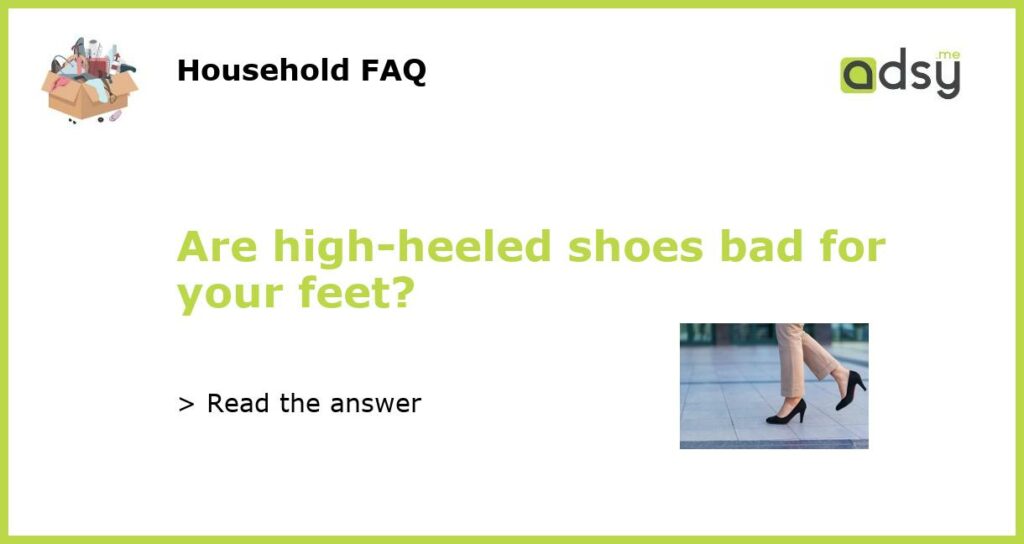What are high-heeled shoes?
High-heeled shoes are also called as stiletto heels, pumps, or high-heel sandals, which have a long, slender heel that can range from one inch to more than six inches in height, accompanied by a pointed or rounded toe.
Why high-heeled shoes are popular?
High-heeled shoes are considered fashionable and stylish. They add height, lengthen legs, and make a woman look confident and powerful. High-heeled shoes are also perceived to be sexy, adding to the appeal of the wearer.
What are the health effects of wearing high-heeled shoes?
Wearing high-heeled shoes for extended periods can have negative implications on one’s overall health. These include the following:
- Foot pain and discomfort: High heels impact the front of your feet, leading to discomfort, blisters, and calluses. Overuse of high-heels can lead to Achilles tendonitis.
- Back and leg pain: High heels can cause an imbalance in the way you walk, leading to additional pressure on the lower back, knees, and legs. Over time, this can lead to back pain, muscle strain, and joint problems.
- Hammer toes and bunions: High-heeled shoes can cause your toes to be pressed together, leading to the formation of hammer toes and bunions.
- Reduced stability and balance: High-heeled shoes offer less contact with the ground, which reduces stability and balance. This is particularly a concern among older adults.
- Injuries from falls: Wearing high-heeled shoes increases the risk of toppling and tripping, leading to injuries from falls.
How can you minimize the negative effects of high-heeled shoes?
Here are some tips to keep in mind while wearing high-heeled shoes:
- Wear a lower heel, preferably one that is an inch or less.
- Choose shoes with a wider toe box, which reduces the pressure on your toes.
- Wear cushioned insoles, or add soft pads and liners to your shoes to provide more support and shock absorption.
- Stretch your calves and feet regularly, especially when you have been standing or walking for extended periods in high-heeled shoes.
- Limit the amount of time you wear high-heeled shoes.
High-heeled shoes are not inherently bad for your feet, but overuse or improper use can lead to a variety of health problems. Women who wear high-heeled shoes regularly should take preventive measures to protect their feet and minimize the negative effects of wearing these shoes. The key is moderation, as wearing high-heels in moderation, and with proper precautions can help you achieve the fashion and style you desire without compromising your health.






